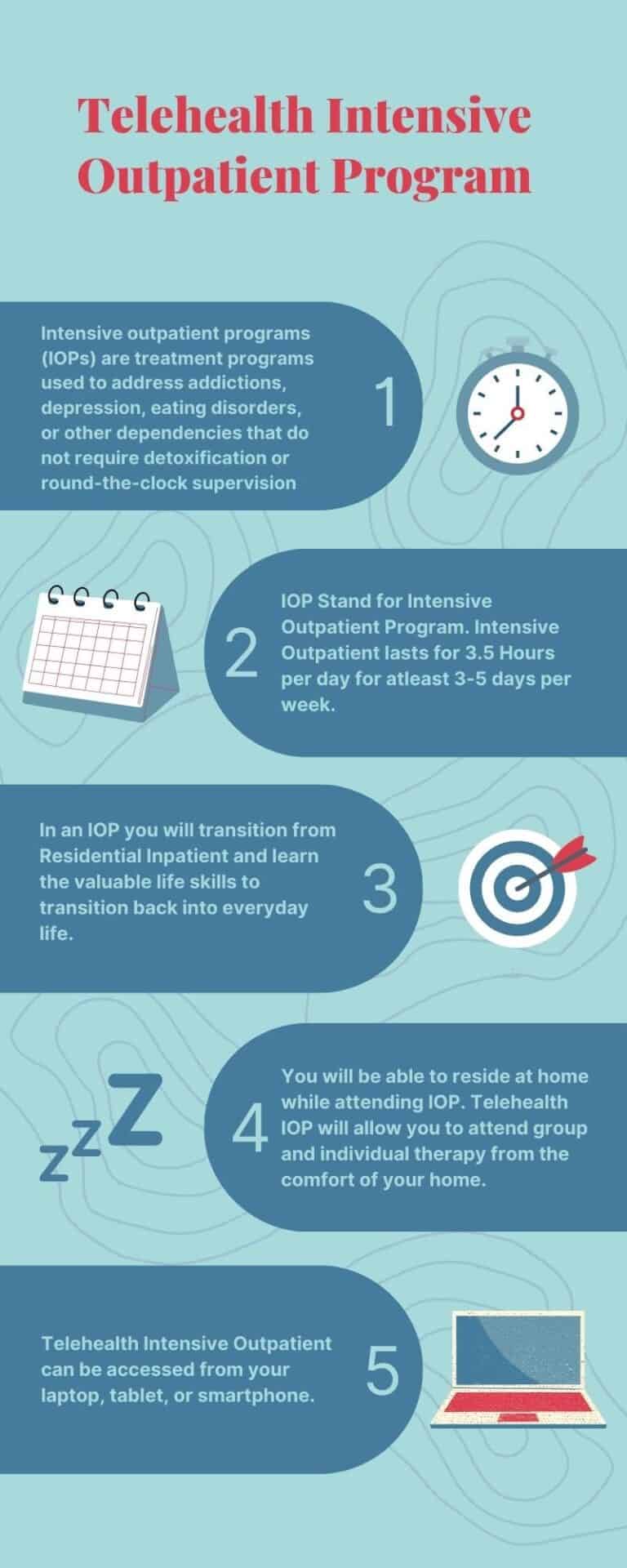Browsing the Intricacies of Twin Diagnosis Therapy Within an Intensive Outpatient Program Setting
In the world of psychological wellness and addiction treatment, the intersection of twin diagnosis provides a nuanced obstacle that requires a thorough and tailored technique. Within the boundaries of an Intensive Outpatient Program (IOP) setting, the intricacies of resolving co-occurring mental health and wellness conditions and material use disorders require a delicate equilibrium of competence and resources to browse. The assimilation of evidence-based techniques, collaborative efforts among multidisciplinary teams, and a keen understanding of the special requirements of each person are essential elements in successfully managing double diagnosis within an IOP structure. By exploring the ins and outs of twin diagnosis treatment within this extensive outpatient context, a clearer course emerges in the direction of alternative and lasting healing for those grappling with these linked challenges.
Twin Diagnosis Introduction
What is the importance of comprehending double diagnosis in mental health and wellness treatment? It is important to recognize and address this comorbidity as it can considerably influence the effectiveness of psychological wellness therapy.
Understanding dual medical diagnosis is vital as it requires an extensive and integrated approach to treatment. By recognizing the interplay in between material usage and mental health, doctor can customize treatments to meet the one-of-a-kind requirements of each person. This alternative approach not just addresses signs but additionally targets underlying variables that add to the twin diagnosis.
Furthermore, unattended dual medical diagnosis can cause a cycle of regression and aggravating psychological health and wellness signs and symptoms. By acknowledging the intricacy of dual medical diagnosis and providing specific treatment, medical care professionals can sustain people in accomplishing long-lasting recuperation and enhanced psychological health.
Tailored Treatment Strategies
Identifying the elaborate interaction in between material usage disorders and psychological wellness problems, the growth of customized therapy plans is paramount in addressing the complexities of dual medical diagnosis in psychological health and wellness therapy. Tailored therapy strategies are personalized methods that take into consideration the unique requirements, difficulties, and objectives of people facing dual diagnosis. These plans are created collaboratively by a multidisciplinary group of specialists, including psychiatrists, psychologists, social workers, and addiction experts, to make sure thorough and integrated care.
Tailored treatment plans commonly include a mix of treatments, medications, and behavioral treatments that target both the compound usage problem and the mental wellness condition at the same time. These strategies may include cognitive-behavioral treatment, dialectical behavior modification, medication-assisted treatment, individual therapy, group treatment, and household treatment, to name a few evidence-based treatments. By tailoring therapy methods to private scenarios, customized plans can deal with the source of double diagnosis, promote lasting recovery, and improve general top quality of life for people battling with co-occurring disorders.
Integrated Treatment Approach

Furthermore, the social aspect of integrated treatment includes addressing ecological elements that might add to the growth or perpetuation of compound usage and mental health and wellness issues. This can consist of family characteristics, real estate instability, or lack of social assistance. By integrating social interventions like family treatment, occupation support, and area resources, the therapy comes to be a lot more alternative and customized to the person's specific demands. In general, an incorporated treatment approach in twin medical diagnosis treatment within an intensive outpatient program setup intends to give extensive, efficient, and individualized treatment to individuals facing co-occurring conditions.
Challenges in IOP Establishing
In the context of twin medical diagnosis therapy within an extensive outpatient program, browsing the complexities of co-occurring compound usage problems look these up and mental wellness problems offers significant difficulties. Among the primary hurdles in the IOP setting is the control of treatment between mental health and wellness experts and chemical abuse professionals to ensure a detailed therapy strategy. This requires effective communication, collaboration, and a deep understanding of how these problems connect and affect each other.
Additionally, the ever-changing nature of substance use disorders and mental wellness problems includes an additional layer of intricacy - Intensive Outpatient Program (IOP). Clients in an IOP may experience sudden shifts in their signs and symptoms or substance food cravings, requiring timely treatment and change of therapy approaches. Stabilizing the strength of treatment and support while allowing customers the adaptability to manage their day-to-day duties can be a delicate balance to maintain
In addition, addressing preconception and resistance to treatment within the IOP setup can restrain progress. Some people may be reluctant to disclose their twin diagnosis or might feel embarrassed, impeding their involvement in the restorative procedure. Conquering these obstacles requires an encouraging and non-judgmental setting that promotes trust fund and openness.

Collaborative Professional Initiatives

Joint initiatives likewise include regular interaction and information sharing amongst team participants to make sure a natural therapy approach - Intensive Outpatient Program (IOP). This might involve situation conferences, joint sessions with the individual, or shared documentation to track development and adjust therapy strategies as required. Additionally, cooperation may consist of involving various other health care specialists such Related Site as medical care doctors or family members specialists to provide all natural support to the person. Inevitably, a united front of experts interacting boosts the effectiveness of double medical diagnosis therapy within an intensive outpatient program.
Verdict
In conclusion, effective double diagnosis treatment within an intensive outpatient program setting calls for tailored therapy strategies and an integrated care method. Obstacles might develop in this setting, however joint initiatives among specialists can assist browse these complexities. By addressing the special needs of people with co-occurring mental health and material use conditions, IOP programs can offer extensive and holistic treatment to sustain recovery and general health.